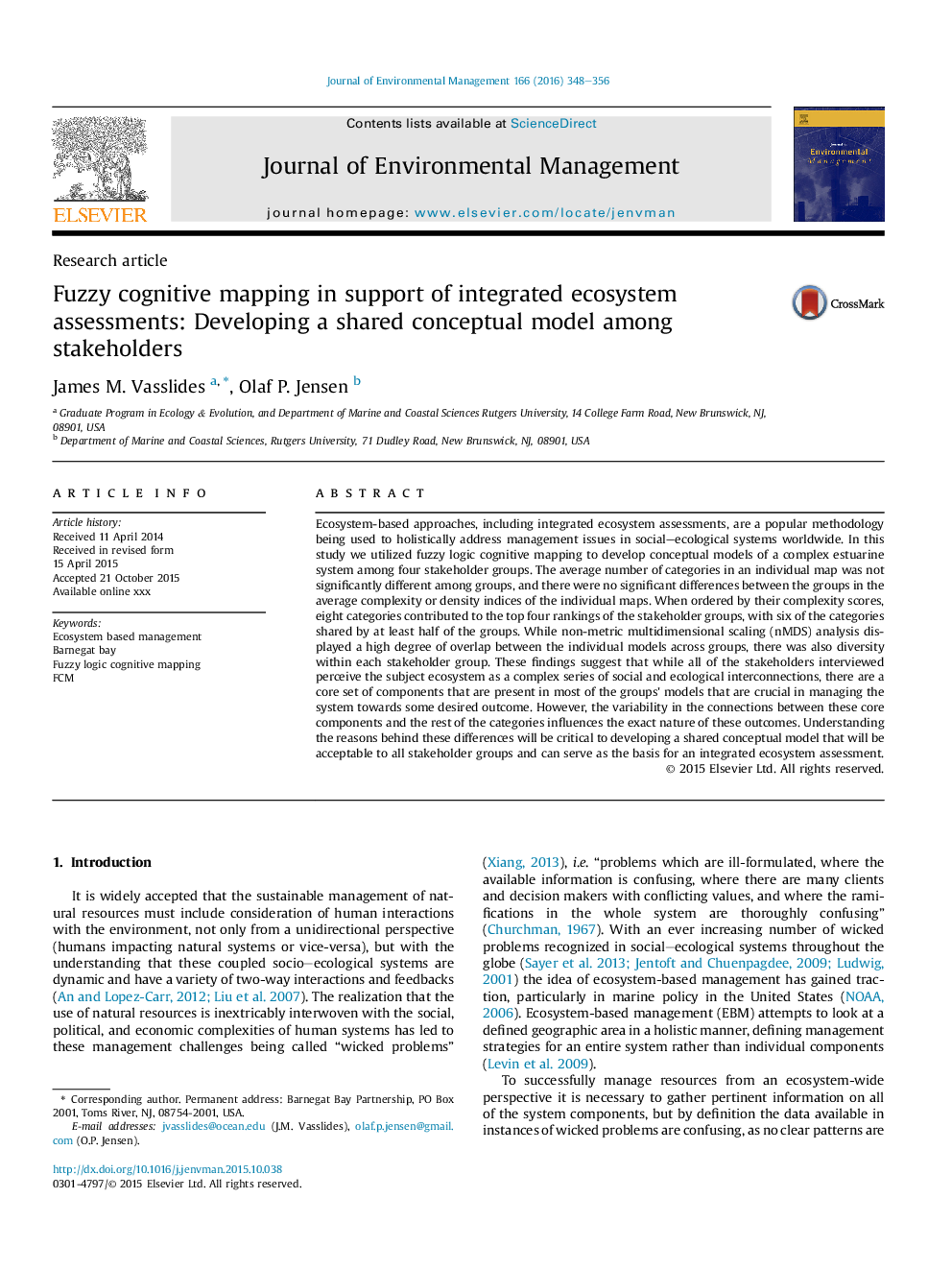| Article ID | Journal | Published Year | Pages | File Type |
|---|---|---|---|---|
| 7481391 | Journal of Environmental Management | 2016 | 9 Pages |
Abstract
Ecosystem-based approaches, including integrated ecosystem assessments, are a popular methodology being used to holistically address management issues in social-ecological systems worldwide. In this study we utilized fuzzy logic cognitive mapping to develop conceptual models of a complex estuarine system among four stakeholder groups. The average number of categories in an individual map was not significantly different among groups, and there were no significant differences between the groups in the average complexity or density indices of the individual maps. When ordered by their complexity scores, eight categories contributed to the top four rankings of the stakeholder groups, with six of the categories shared by at least half of the groups. While non-metric multidimensional scaling (nMDS) analysis displayed a high degree of overlap between the individual models across groups, there was also diversity within each stakeholder group. These findings suggest that while all of the stakeholders interviewed perceive the subject ecosystem as a complex series of social and ecological interconnections, there are a core set of components that are present in most of the groups' models that are crucial in managing the system towards some desired outcome. However, the variability in the connections between these core components and the rest of the categories influences the exact nature of these outcomes. Understanding the reasons behind these differences will be critical to developing a shared conceptual model that will be acceptable to all stakeholder groups and can serve as the basis for an integrated ecosystem assessment.
Keywords
Related Topics
Physical Sciences and Engineering
Energy
Renewable Energy, Sustainability and the Environment
Authors
James M. Vasslides, Olaf P. Jensen,
